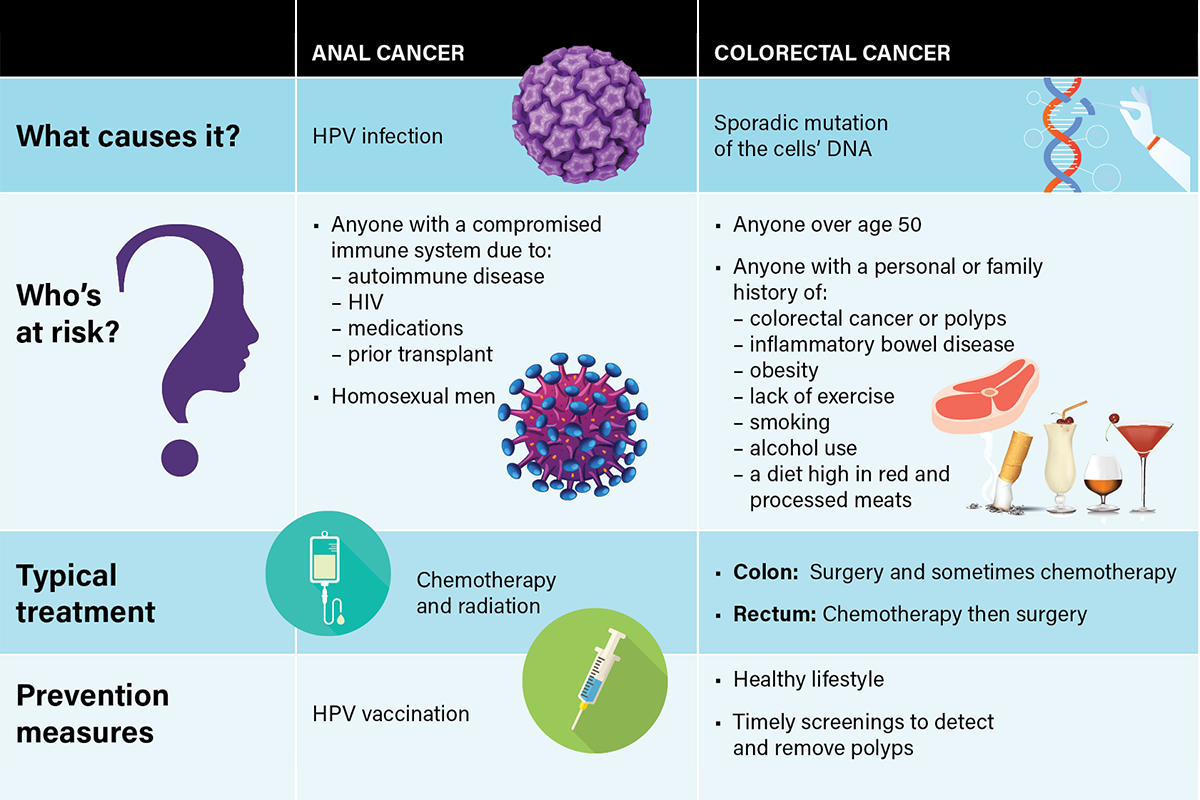When it comes to simple anatomy, the colon, rectum and anus all seem to be part of the same gastrointestinal highway, so wouldn’t the cancers that develop in these different...stretches, be the same? Actually, no.

While colon and rectal cancers can be similar and are often referred to collectively as colorectal cancer, anal cancer is completely different in significant ways, including the cell type where cancer begins, the cause of the cancer, who gets this cancer, and how we treat it.
“Anal cancer is more similar to cervical cancer because the tissue that lines the anus (where anal cancer typically develops) is like the tissue that lines a woman’s cervix,” explains gastrointestinal surgical oncologist Steven Nurkin, MD, MS, FACS. “Most anal cancers are related to human papillomavirus (HPV) infection like cervical cancer, and the precancerous and cancerous changes that we see in the anal canal are also similar to cervical cancer.”
Colorectal cancers, on the other hand, generally develop as a result of a sporadic mutation in the cells of the colon or rectal lining that causes a polyp, a small abnormal growth of tissue, to form. Left alone, these polyps can become cancerous.
Take our online screening assessment
Find out your risk for developing certain cancers by taking our online screening assessment today!
Learn MoreBlood in the stool or bleeding is a warning sign for all of these cancers. Any bleeding from your bottom needs to be investigated to determine the source. “The bleeding could be from hemorrhoids, fissures or benign lesions of the skin near the anus, but the symptoms from these conditions usually resolve,” says Dr. Nurkin. Ongoing symptoms demand a doctor’s attention.
A multi-physician, team approach to each of these cancers is important because their treatment often requires more than one type of therapy — surgery, chemotherapy, radiation therapy, targeted drugs and immunotherapy — and in different sequences. Like many cancers, early-stage disease is often treated successfully, but these cancers can grow, spread/metastasize and recur. This is why you should have a physician team with high-volume experience and access to the latest treatment options.




